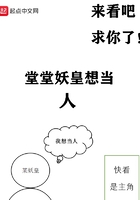In the evenings Pasa sat by the window in the roomnext to the one where they drank, and strummed dreamilyupon her guitar. And then, by twos and threes, wouldcome visiting young caballeros and occupy the prim line ofchairs set against the wall of this room. They were thereto besiege the heart of La Santita. Their method (whichis not proof against intelligent competition) consisted ofexpanding the chest, looking valorous, and consuming agross or two of cigarettes. Even saints delicately orangedprefer to be wooed differently.
Dona Pasa would tide over the vast chasms of nicotinizedsilence with music from her guitar, while she wondered ifthe romances she had read about gallant and more—morecontiguous cavaliers were all lies. At somewhat regularintervals Madama would glide in from the dispensary witha sort of drought-suggesting gleam in her eye, and therewould be a rustling of stiffly starched white trousers as oneof the caballeros would propose an adjournment to thebar.
That Dicky Maloney would, sooner or later, explore thisfield was a thing to be foreseen. There were few doors inCoralio into which his red head had not been poked.
In an incredibly short space of time after his first sightof her he was there, seated close beside her rocking chair.
There was no back-against-the-wall poses in Dicky’stheory of wooing. His plan of subjection was an attack atclose range. To carry the fortress with one concentrated,ardent, eloquent, irresistible escalade—that was Dicky’sway.
Pasa was descended from the proudest Spanish familiesin the country. Moreover, she had had unusual advantages.
Two years in a New Orleans school had elevated herambitions and fitted her for a fate above the ordinarymaidens of her native land. And yet here she succumbedto the first red-haired scamp with a glib tongue and acharming smile that came along and courted her properly.
Very soon Dicky took her to the little church on thecorner of the plaza, and “Mrs. Maloney” was added to herstring of distinguished names.
And it was her fate to sit, with her patient, saintly eyesand figure like a bisque Psyche, behind the sequesteredcounter of the little shop, while Dicky drank andphilandered with is frivolous acquaintances.
The women, with their naturally fine instinct, saw achance for vivisection, and delicately taunted her with hishabits. She turned upon them in a beautiful, steady blazeof sorrowful contempt.
“You meat-cows,” she said, in her level, crystal-clear tones;“you know nothing of a man. Your men are maromeros.
They are fit only to roll cigarettes in the shade until the sunstrikes and shrivels them up. They drone in your hammocksand you comb their hair and feed them with fresh fruit.
My man is of no such blood. Let him drink of the wine.
When he has taken sufficient of it to drown one of yourflaccitos he will come home to me more of a man thanone thousand of your pobrecitos. My hair he smooths andbraids; to me he sings; he himself removes my zapatos, andthere, there, upon each instep leaves a kiss. He holds—Oh, you will never understand! Blind ones who have neverknown a man.”
Sometimes mysterious things happened at night aboutDicky’s shop. While the front of it was dark, in the littleroom back of it Dicky and a few of his friends would sitabout a table carrying on some kind of very quiet negociosuntil quite late. Finally he would let them out the frontdoor very carefully, and go upstairs to his little saint.
These visitors were generally conspirator-like men withdark clothes and hats. Of course, these dark things werenoticed after a while, and talked about.
Dicky seemed to care nothing at all for the society ofthe alien residents of the town. He avoided Goodwin, andhis skilful escape from the trepanning story of DoctorGregg is still referred to, in Coralio, as a masterpiece oflightning diplomacy.
Many letters arrived, addressed to “Mr. Dicky Maloney,”
or “Senor Dickee Maloney,” to the considerable pride ofPasa. That so many people should desire to write to himonly confirmed her own suspicion that the light from hisred head shone around the world. As to their contents shenever felt curiosity. There was a wife to you!
The one mistake Dicky made in Coralio was to runout of money at the wrong time. Where his money camefrom was a puzzle, for the sales of his shop were nextto nothing, but that source failed, and at a peculiarlyunfortunate time. It was when the comandante, DonSenor el Coronel Encarnacion Rios, looked upon the littlesaint seated in the shop and felt his heart go pitapat.
The comandante, who was versed in all the intricateart of gallantry, first delicately hinted at his sentimentsby donning his dress uniform and strutting up and downfiercely before her window. Pasa, glancing demurely withher saintly eyes, instantly perceived his resemblance to herparrot, Chichi, and was diverted to the extent of smile.
The comandante saw the smile, which was not intendedfor him. Convinced of an impression made, he entered theshop, confidently, and advanced to open compliment. Pasafroze; he pranced; she flamed royally; he was charmed toinjudicious persistence; she commanded him to leave theshop; he tried to capture her hand and—Dicky entered,smiling broadly, full of white wine and the devil.
He spent five minutes in punishing the comandantescientifically and carefully, so that the pain might beprolonged as far as possible. At the end of that time hepitched the rash wooer out the door upon the stones ofthe street, senseless.
A barefooted policeman who had been watching theaffair from across the street blew a whistle. A squad offour soldiers came running from the cuartel around thecorner. When they saw that the offender was Dicky,they stopped, and blew more whistles, which broughtout reinforcements of eight. Deeming the odds againstthem sufficiently reduced, the military advanced upon thedisturber.















